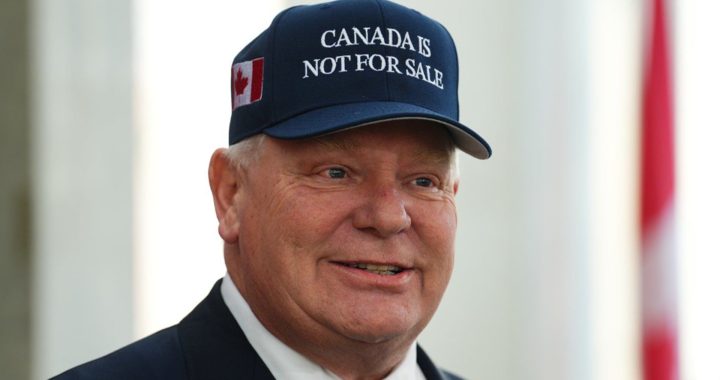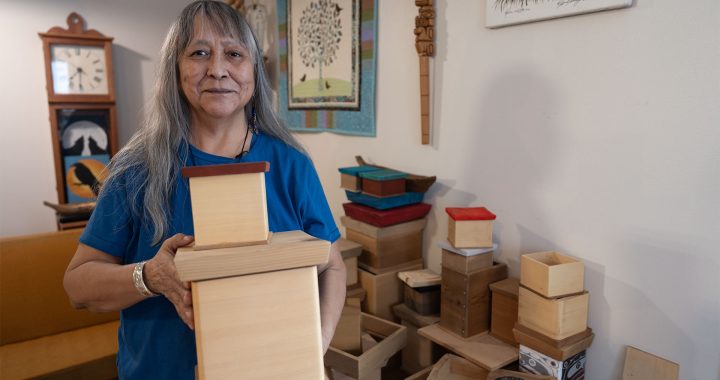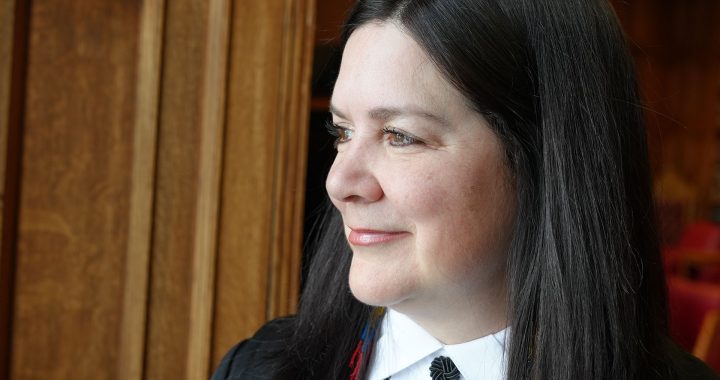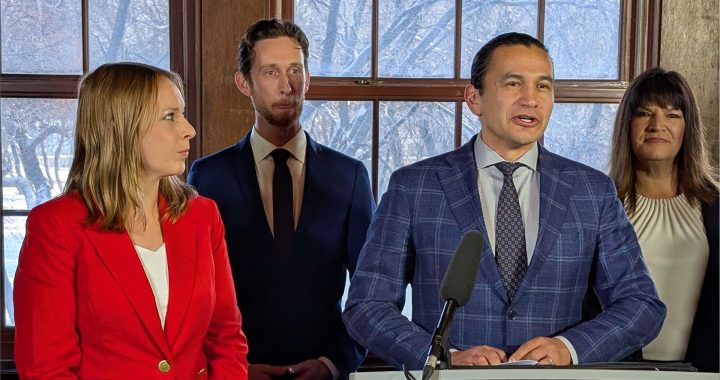
This picture posted to social media showing Logan Staats, Smogelgem, Na'Moks and Skyler Williams was referenced in an internal October 2021 federal briefing memo. Photo: Skyler Williams/Facebook
Federal officials feared links between Mohawk activists and Wet’suwet’en hereditary chiefs could spark a repeat of 2020’s countrywide solidarity blockades, an unclassified internal memo shows.
The briefing document, obtained through access to information laws, was prepared for Daniel Quan-Watson, deputy minister of Crown-Indigenous Relations, prior to a meeting with the Privy Council Office (PCO) last fall.
The officials were slated to discuss the “escalation of protests in Wet’suwet’en territory” in northwestern British Columbia and opposition to old-growth logging at Fairy Creek on Vancouver Island.
“Hereditary Chief Woos (Frank Alec) has invited people through social media to travel to the territory and help defend the land,” says the Oct. 18, 2021 memo. “Those who have responded to his call include approximately forty Mohawk ‘warriors’.”
The PCO is the bureaucratic arm of the Prime Minister’s Office that helps the government implement its agenda. Its leader, or clerk, serves as Canada’s top public servant, policy adviser to the prime minister and secretary to the cabinet.
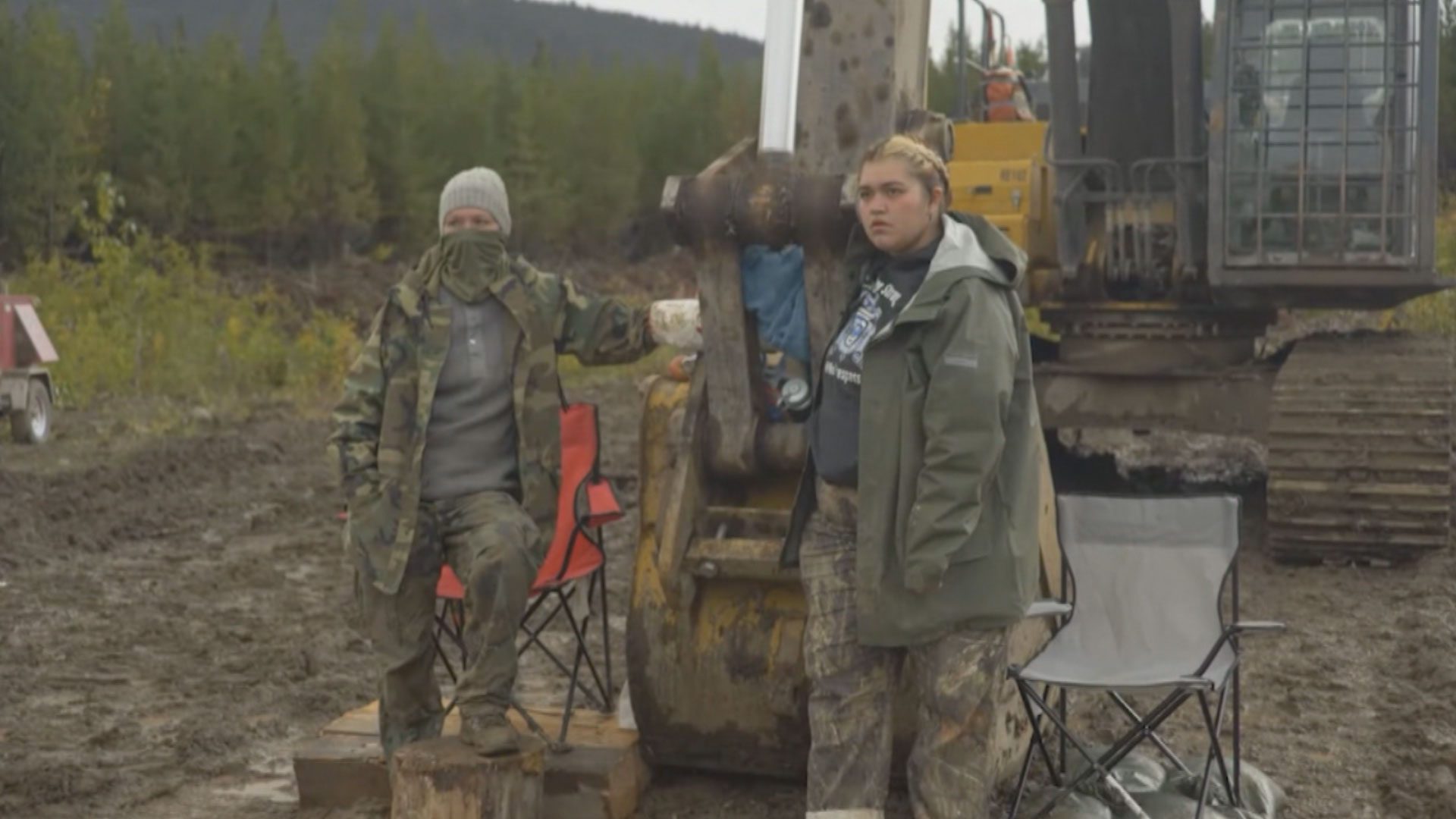
The agency has an intelligence wing responsible for advising the prime minister on national security. The memo anticipates potential questions about the Mohawk-Wet’suwet’en alliance, offering Quan-Watson a point to register if asked about it.
“Certain Mohawk individuals are known to use protest opportunities to leverage support online, and in the mainstream media,” the memo says. “We can expect that these relationships will continue to develop, to the extent that they are able to support each other’s objectives.”
While the memo doesn’t name these “certain Mohawk individuals,” it quotes an Oct. 15, 2021 post by Skyler Williams, who is Mohawk from Six Nations of the Grand River in southern Ontario.
The post shows Williams and musician Logan Staats, also of Six Nations, marching with their fists in the air alongside hereditary chiefs Na’Moks and Smogelgem in the streets of northern B.C.
“This is what real Nation to Nation looks like, Haudenosaunee and Wet’suwet’en family standing together against the colonial violence and corporate greed that threatens the safety and well-being of future generations,” reads the caption. “The Wet’suwet’en have called on their Allies across Turtle Island to stand with them.”
Asked about it over the phone, Williams laughed at the mention of the “forty Mohawk warriors,” intelligence the memo presents without attributing a source. “Maybe me and Logan changed our coats a couple times,” he said, “but I don’t know.”
This is what real Nation to Nation looks like, Haudenosaunee and Wet'suwet'en family standing together against the colonial violence and corporate greed that threatens the safety and well-being of future generations. pic.twitter.com/Pzbn6Z83us
— Skyler Williams (@landbackskyler) October 15, 2021
Williams said the memo reveals a “typical” government response, which is to criminalize and spy rather than resolve the underlying land claims and title issues that drive standoffs and resistance movements.
“When people are being criminalized and brutalized in the way that Indigenous folks across the country are, we need to be able to make those stands together,” he said. “When you see the federal government keeping an eye on things like that, it’s because they know they’re in the wrong.”
Williams fronts an ongoing Haudenosaunee-led land occupation that has thwarted a planned subdivision in Caledonia, Ont., for nearly two years. It’s slated to return to court this summer.
He pointed out the Haudenosaunee Confederacy Chiefs Council, the traditional government of the Six Nations, pledged “unwavering support” for the Wet’suwet’en during an Oct. 9, 2021 council meeting.
“That’s an obligation that we have as Haudenosaunee people,” said Williams, who suspects “it’s fear” driving Ottawa’s concerns. “The federal government knows we’re in the right. We have every right to be making stands for these lands.”
Canada, B.C. and the hereditary chiefs signed a memorandum of understanding agreeing to recognize Wet’suwet’en house groups as the territory’s rights and title holders on March 14, 2020, but progress “has been slower than expected for a number of reasons,” the memo says.

A month before the MOU was signed, Tyendinaga Mohawk Territory members halted trains through the country’s busiest rail corridor in retaliation for an RCMP raid on Wet’suwet’en territory. A delegation of Wet’suwet’en dignitaries flew east to show their appreciation amid the shutdown.
The memo says it became clear to the federal government during the demonstration that the hereditary chiefs “have established relationships with leaders and activities in the Mohawk community.”
The government feared a potential repeat in late 2021 as construction of the Coastal GasLink pipeline entered its final stages, the memo reveals.
“There is a risk that protest activities could spread and possibly escalate to the levels seen in early 2020,” it says. “The RCMP are monitoring the situation closely, but have been blocked from accessing the protest site by the land defenders.”
The Mounties hadn’t yet enforced the injunction for the third time, the memo adds. That changed a month later when the Community-Industry Response Group (C-IRG), an outfit of B.C. Mounties who specialize in policing protests against resource extraction, swooped in.
Read more:
B.C. greenlit more Mounties on Wet’suwet’en territory before 3rd raid
They deployed a riot squad supported by a heavily armed tactical team, dog unit, and police helicopter for a two-day raid starting Nov. 18, 2021.
The PCO periodically monitors First Nations activism to supply the prime minister and cabinet with intelligence — notably during the Idle No More movement 10 years ago, researchers have found.
The PCO refused an interview request for this story but, in a statement supplied instead, said this sort of monitoring is routine.
“Part of PCO’s role is to coordinate responses to issues facing the government and the country,” said spokesperson Pierre-Alain Bujold in an email. “In support of this role, informational updates on current or emerging issues, like the protests in Wet’suwet’en territory in the fall of 2021, are part of PCO’s regular business.”






